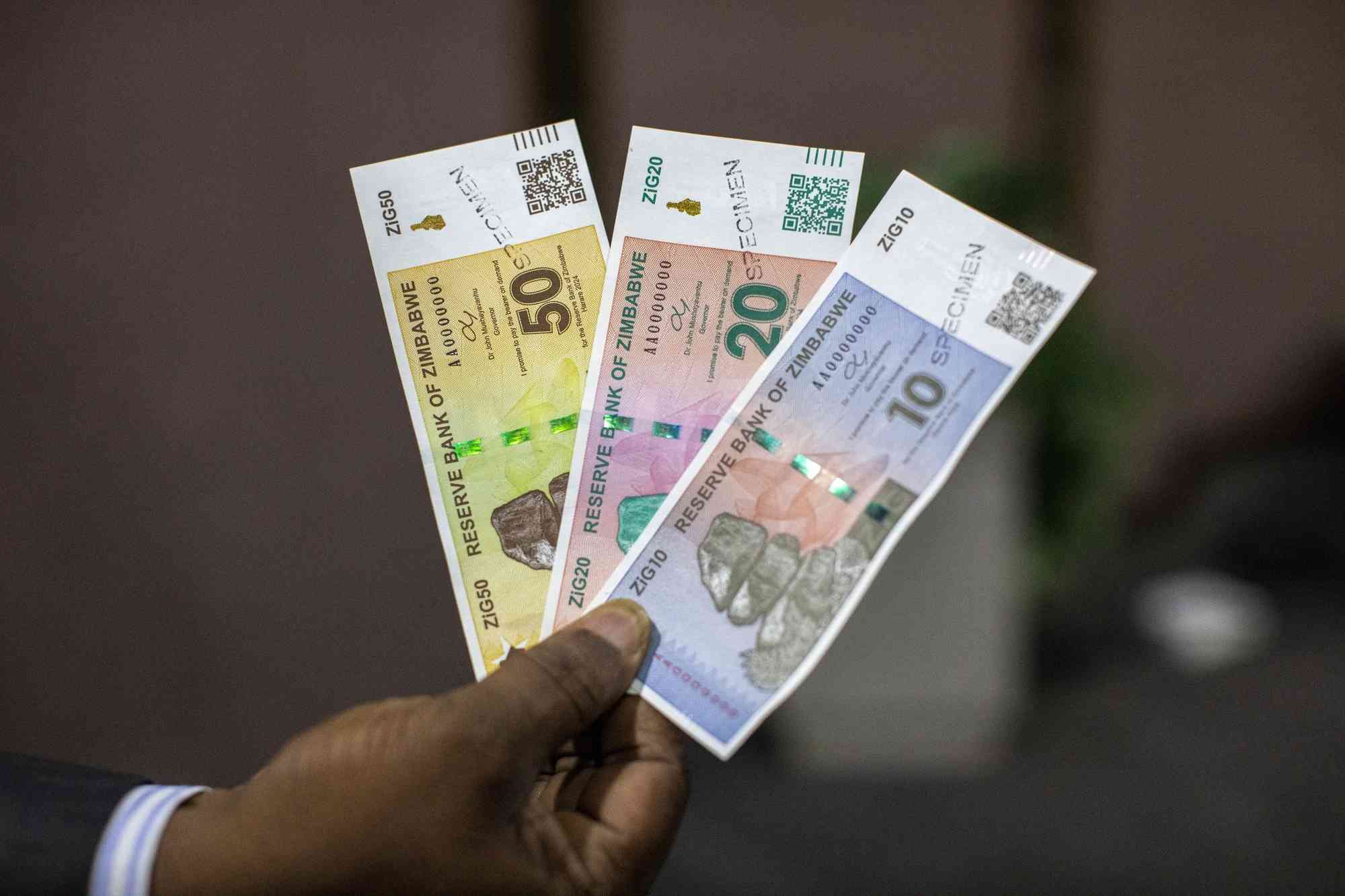
WHEN the post-mortem is eventually conducted in future on how the Zimbabwe Gold (ZWG) met its maker, it will reveal that the hangman was none other than its supposed parent, government.
Government last week announced that wheat farmers will be paid solely in United States dollars after buckling under pressure from farmers who refused to be paid partly in the local currency.
Last year, farmers got 75% in foreign currency and the remainder in Zimdollars at the prevailing interbank rate.
There are fears the move will open floodgates for other sectors such as mining and exporters to wholly retain their proceeds, instead of selling 25% to government at the prevailing interbank rate under the surrender rule.
Government still owes numerous entities for foreign exchange purchased by Treasury under the 25% surrender requirement and will now convert that debt into a ZWG-denominated instrument with a tenor of one year at an interest rate of 7,5% per annum.
RBZ had previously said companies would get non-negotiable certificates of deposit of one year.
Since the ZWG (formerly ZiG) debuted on April 5, government has had a half-hearted approach towards promoting the use of the ZWG.
At the launch, Reserve Bank of Zimbabwe governor John Mushayavanhu was bullish about the increased demand for ZWG saying companies would jostle for the local currency to pay their corporate income tax obligations.
- ‘Killer’ soldier granted bail
- Letter from America: The death of the Zimbabwe dollar shows the King has no clothes
- Letter from America: The death of the Zimbabwe dollar shows the King has no clothes
- US$4 billion mystery in Afreximbank, Zim deals
Keep Reading
Companies pay their tax obligation quarterly, known as quarterly payment dates (QPDs).
The second QPD was on June 25 and Treasury was expected to gazette legislation requiring companies to pay half of their tax obligations in local currency.
It did not happen and an opportunity to boost demand for the local unit was lost.
In his Mid-Term Fiscal Policy Review, Finance minister Mthuli Ncube said companies would pay half of their taxes in local currency.
In his Mid-Term Monetary Policy Statement, Mushayavanhu said the success of the ZWG hinged on the “continued fostering of super demand for the local currency by government through a mandatory requirement for companies to settle at least 50% of their tax obligations in the local currency on quarterly payment dates”.
We are again approaching another quarterly payment period without the enabling legislation for a currency which authorities say is backed by gold and cash reserves.
There have been increased calls for government to charge for certain services such as passport fees in local currency. The calls appear to have fallen on deaf ears.
At the unveiling of the ZWG, Mushayavanhu said the currency was backed by US$100 million in cash and 2 522kg of gold valued at US$185 million, bringing the total to US$285 million.
The cover has now grown to four times from three at the launch of the local currency.
A day earlier, Treasury secretary George Guvamatanga had told President Emmerson Mnangagwa during an inspection of gold reserves at the central bank that government had US$300 million held at private banks earmarked to support the local currency.
“And, if you allow me, your Excellency, just for today, to mention that the government of Zimbabwe, not in the central bank, but in several private banks, is sitting on reserves of US$300 million,” Guvamatanga said.
Forex reserves to support ZWG are at US$370 million, according to Mushayavanhu.
Government must walk the talk if the ZWG is to hold its own.
Indications so far show that government is paying lip-service to bolstering the use of the local currency, which has been turned into part-time legal tender.






